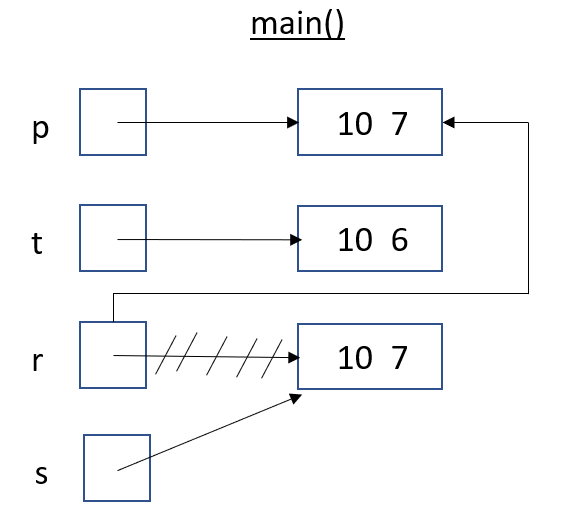
Part A.

Part B.
Problem 3
Description of case given: General case.
Additional cases:
Note: other answers were accepted, but to get full credit the first two listed here had to
be included, and all the cases had to be distinct from each other
Problem 4
There are a few variations on the commands to use, here are two examples:
mkdir ../ex3 cp *.java ../ex3
cd .. mkdir ex3 cp ex2/*.java ex3
public class BankAccount {
private int balance;
public BankAccount() {
int balance = 0;
}
public BankAccount(int initBalance) {
int balance = initBalance;
}
public void deposit(int amount) {
balance += amount;
}
public void withdraw(int amount) {
balance -= amount;
}
public int getBalance() {
return balance;
}
}
Problem 6
Solution shown in bold.
// Simulate changes in a roach population.
public class RoachPop {
public static final int TRAP_CAPACITY = 25;
// number of roaches a trap can kill
public static final int SPRAY_PERCENT = 20;
private int size;
private int startSize;
// Creates a roach population of the given size
// PRE: size > 0
public RoachPop(int initSize) {
startSize = initSize;
size = initSize;
}
// Gets the current population size
public int getSize() {
return size;
}
// The current population as a percentage of the original population.
// (so a value < 100 means the roach population decreased)
public int percentOfStartPop() {
return (int) ((size / (double) startSize) * 100);
}
// The population breeds
public void breed() {
size *= 2;
}
// The population gets sprayed
public void spray() {
size -= (int) (size * SPRAY_PERCENT / 100.0);
}
// Set traps for the roaches.
// PRE: numTraps > 0
public void setTraps(int numTraps) {
int reduction = TRAP_CAPACITY * numTraps;
if (reduction > size) {
size = 0;
return;
}
size -= reduction;
}
}
Note: some students saved the locations of ALL intances of value in a separate ArrayList or array: starting on MT 2, unnecessarily using O(n) extra space would result in a point deduction.
Two main solution-types shown here:
// 2-loop solution (doesn't examine more elmts than necessary)
public static int maxDistance(int[] nums, int value) {
boolean found = false;
int first = 0;
// find first occurrence
while (first < nums.length && nums[first] != value) {
first++;
}
// 0 occurences
if (first == nums.length) { return 0; }
// find last occurrence
int last = nums.length - 1;
while (last >= 0 && nums[last] != value) {
last--;
}
return last - first + 1; // works for >= 1 occurrence of value
}
// 1-loop solution (always visits every element)
private static int maxDistance2(int[] nums, int value) {
int first = -1;
int last = -1;
for (int i = 0; i < nums.length; i++) {
if (nums[i] == value) {
if (first == -1) { // first time seeing value
first = i;
last = i;
}
else {
last = i;
}
}
}
if (first == -1) { return 0; } // 0 occurrences
return last - first + 1;
}